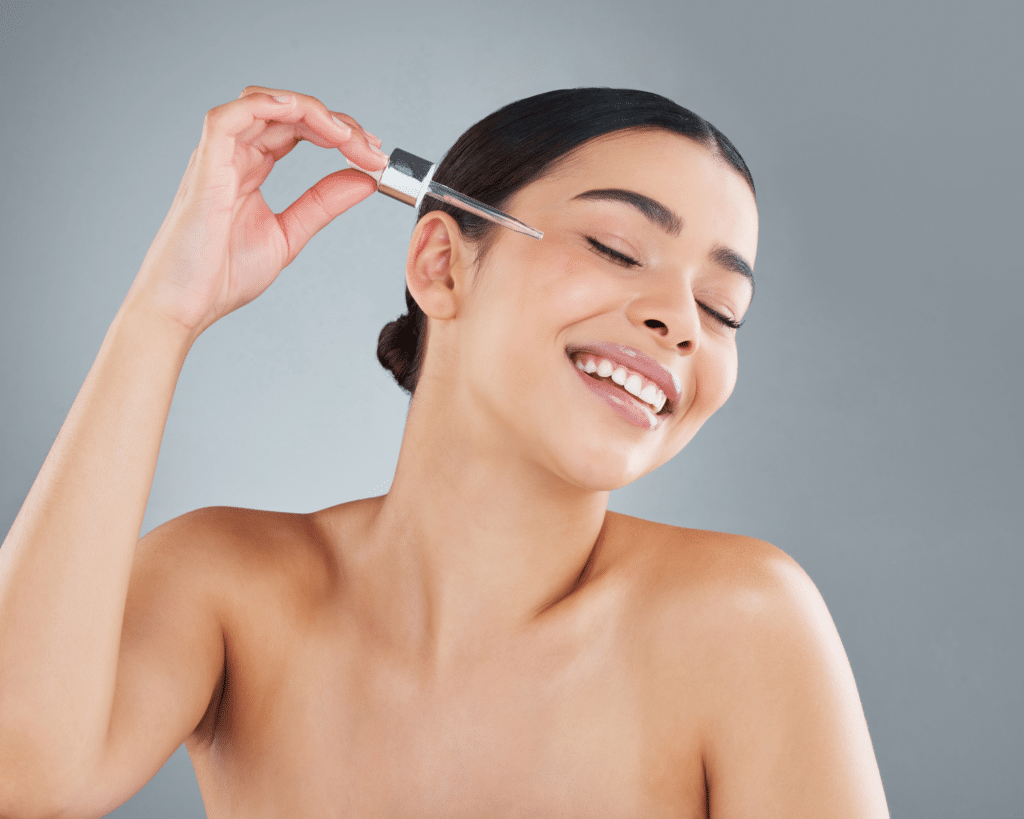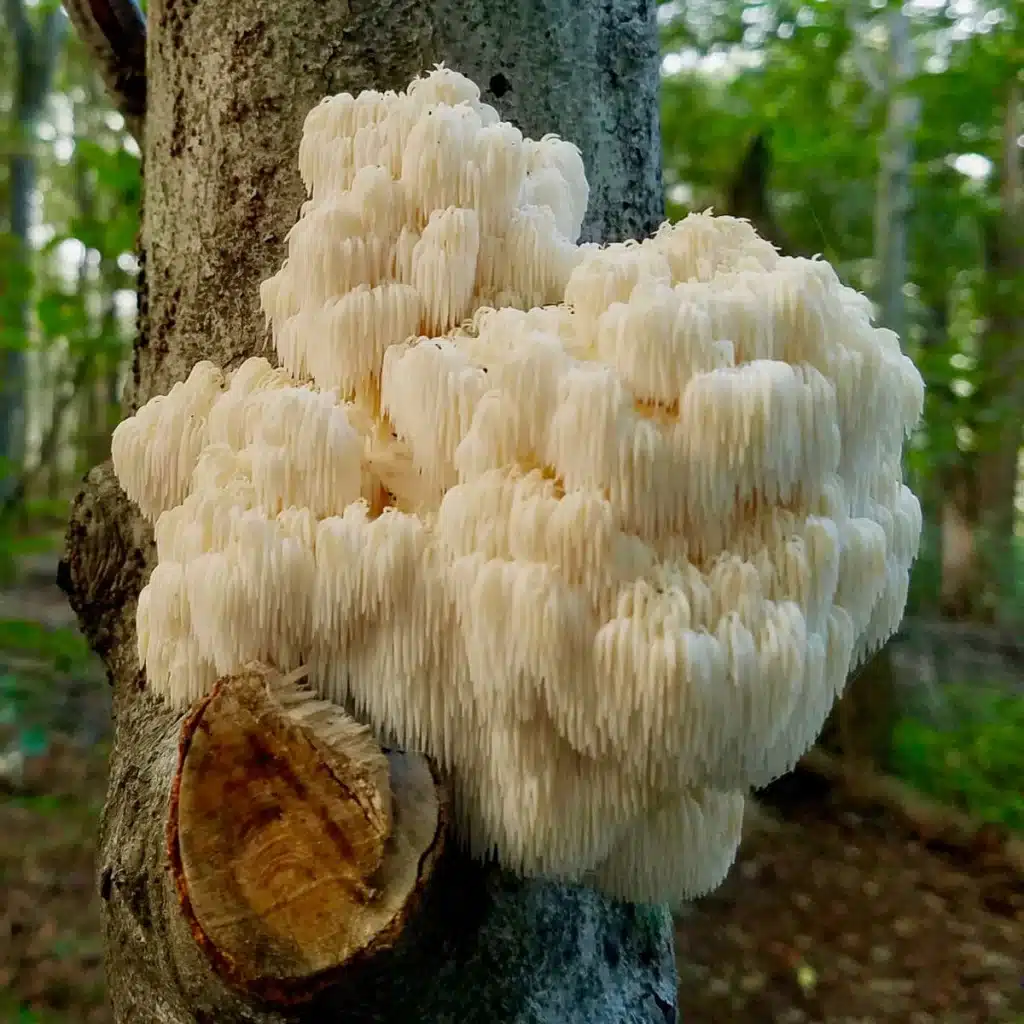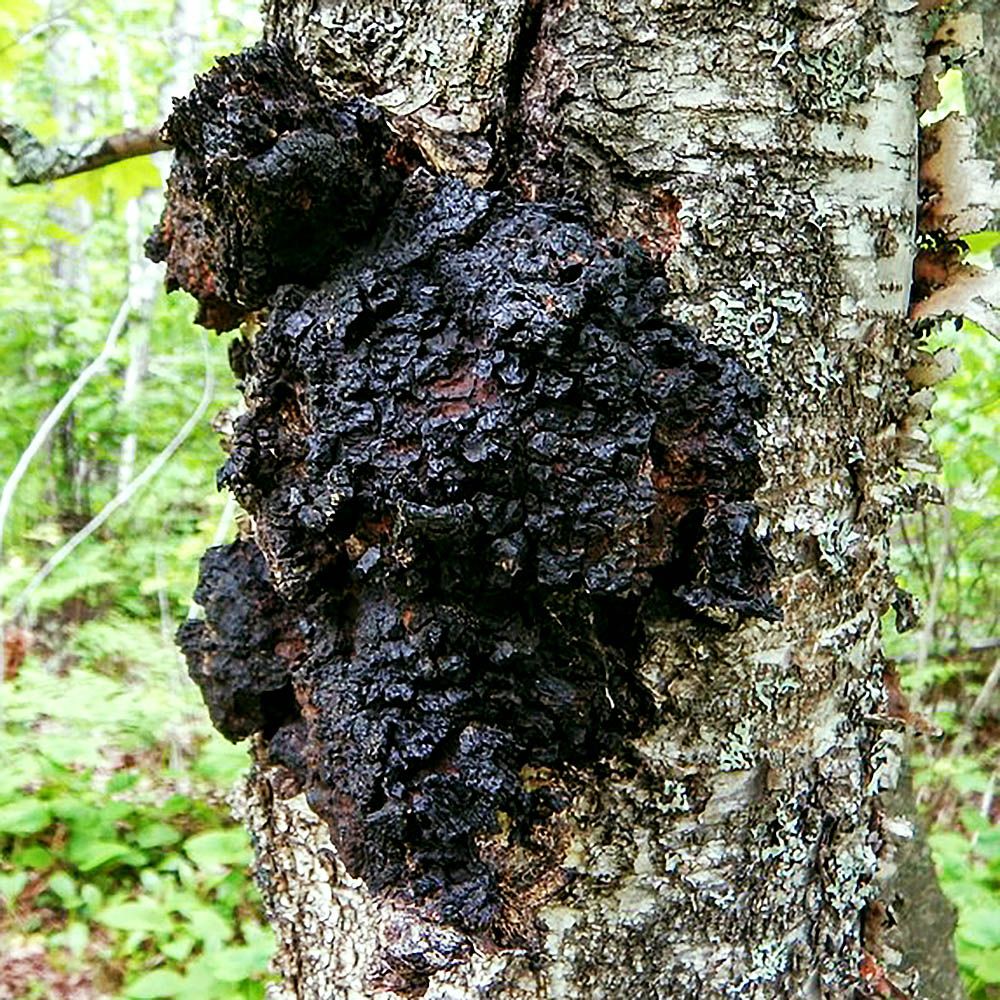written by Allison Goins, Ph,D. | Published on March 30th, 2024 at 12:00 pm
Mushrooms have been a staple in many cultures for centuries, not just for their delicious taste but also for their potential health benefits. Specifically in Asian cultures mushrooms are a very popular ingredient, and this makes them one of the many staple ingredients in a ton of Korean Beauty Skincare products. And due to the popularity of mushrooms in Korean skincare; this has led many people to look for information on mushrooms’ skin benefits. Recently, they’ve been popping up (pun intended) not only in Korean skincare products but also in the skincare formulations from companies around the world, leaving many wondering if there’s any truth to the hype.
The answer? Mushrooms might hold promise for your skin, but there’s still more research needed. In this article, we are breaking down what science currently tells us about mushroom’s skin benefits.
The Potential Benefits Mushrooms Have For Your Skin:
Before we talk about the science behind mushroom’s skin benefits, let’s break down some of the most common marketing claims about mushrooms in skincare. There are quite a few benefits of mushrooms that are marketed in skincare; including anti-aging, hydrating, brightening, and soothing.
Anti-Aging Arsenal
Studies show some mushroom extracts might help inhibit the enzymes that break down collagen, elastin, and hyaluronic acid. These are proteins you probably hear about often because they play a major role in your skin’s elasticity, overall firmness, and prevention of wrinkles, as well as your skin’s hydration. All of the skin attributes that are controlled by these important proteins are crucial components for a youthful appearance. This could potentially lead to reduced wrinkles and firmer skin. And this is why sometimes mushrooms are marketed as anti-aging ingredients.
Related Post: Understanding the Science Behind Aging in Skin: Tips for Youthful Glow

Hydration Heroes
Polysaccharides, sugars are naturally found in mushrooms and so many other skincare active. These sugars are large molecules and have been shown to increase skin hydration by attracting and holding onto moisture. This is similar to the way hyaluronic acid and natural humectants like honey and seaweed work. This can be especially beneficial for those with dry skin. The high concentrations of sugars in some mushroom extracts are the reason one of the commonly marketed benefits of mushrooms for your skin is increasing hydration and plumpness.
Related Post: 10 Effective Natural Alternatives to Hyaluronic Acid

Brightening Boost
Extracts from certain mushrooms, like Shiitake, may help reduce melanin production. Scientists analyzing the components of the mushroom extracts found kojic acid, a naturally occurring ingredient that helps diminish the production of melanin in the skin. Melanin is the pigment responsible for skin color. Melanin is one of your body’s protective defenses against UV damage. However, when it is produced excessively, it leads to hyperpigmentation and dark spots. Therefore, ingredients like kojic acid found in Shiitake mushrooms have the potential to help reduce the appearance of these unwanted blemishes, promoting a more even and radiant complexion.
Related Post: Selecting the Perfect Brightening Serum, What You Need to Know

Soothing and Calming:
Mushrooms could be helpful if you have sensitive skin or a damaged skin barrier. Certain mushroom extracts possess properties that have the potential to counteract the irritating effects of some cleansers. Cleansers can disrupt natural moisturizers in your skin and some mushroom extracts can prevent that irritation. Research suggests that mushroom extracts may help mitigate this disruption, offering a gentler cleansing experience for those with easily upset skin. If you do not have sensitive skin, but you have a damaged skin barrier this could be another way to help soothe irritation from a basic routine as your skin barrier heals.
Related Post: Demystifying Your Skin Barrier: What Is It and How Does It Get Damaged
What the Science Says About Mushroom’s Skin Benefits
There have been some promising studies on the effects of mushroom extracts on skin cells, but most haven’t been conducted on humans yet. One study showed a blend of mushroom extracts improved skin cell turnover and firmness, but more research is needed to confirm these findings across different mushroom varieties and product formulations.

The scientific evidence surrounding mushroom’s skin benefits as a topical skincare active is still pretty limited. There are some in-vitro studies, think petri dish and cells that describe some exciting possibilities. However, results that scientists get in the petri dish cannot always be replicated in actual studies with people applying it to their skin. So before definitive claims about the benefits of mushrooms for skin more robust human trials are needed to solidify these claims.
It is true, that in lab settings, certain mushroom extracts have shown promise in inhibiting enzymes that degrade important structural proteins like collagen, elastin, and hyaluronic acid – all crucial components for maintaining a youthful appearance. These findings suggest the potential for wrinkle reduction and improved skin firmness.
Related Post: How to Regain Elasticity in Skin: An Important Step in Anti-Aging Skincare
In addition to anti-aging benefits, there is also research exploring the hydrating properties of the polysaccharides, and sugars found in some mushrooms. Although this may not be studied as well with the sugars in mushrooms, this is one of the mushroom’s skin benefits that is science-backed because this hydration mechanism is well understood. Sugars can hold onto water and release it as your skin needs it.
One clinical trial I found investigated a blend of mushroom extracts and observed improvements in skin cell turnover and firmness, but further studies are required to confirm these results across different mushroom varieties and product formulations. Overall, the current data suggests that mushrooms might offer exciting new possibilities for the skincare world, but more research is needed to definitively determine their effectiveness specifically for anti-aging effects.
So What Mushroom Varieties Are Used in Skincare Today And What Are Those Mushrooms Skin Benefits?
While there’s no single “miracle” mushroom for the skin, the science says different varieties boast different properties and potential benefits. Here’s a quick summary of some of the popular options in skincare today:
Reishi (Ganoderma lucidum)

This adaptogenic wonder is a superstar in Eastern medicine, and for good reason. Adaptogens are molecules that help your body adapt to stress. Early research suggests it might be a champion for calmer and more protected skin. The reason? Its potential anti-inflammatory and antioxidant properties could help soothe irritation and shield your complexion from environmental damage and other things that cause free radicals to form in your skin.
Related Post: Anti-Pollution Skincare: Hype or Helpful
Lion’s Mane (Hericium erinaceus)

This mushroom has gained fame for its potential cognitive benefits, but its talents might extend beyond the brain. Emerging research suggests Lion’s Mane suggests it might promote nerve growth factor in the skin, potentially leading to improved texture and tone. It has the potential to be a gentle nudge for your skin to function at its best, promoting a smoother, more even appearance.
Snow Mushroom (Tremella fuciformis)

Don’t be fooled by its delicate, jelly-like appearance! This translucent fungus is filled with sugars that pack a hydrating punch. In addition to its hydrating abilities, some research suggests it might be slightly photoprotective. It has the potential to be a built-in moisturizer with a little bit of sun-shielding capabilities, offering a double dose of defense against dryness and premature aging.
Related Post: Why Is Sunscreen Important?
Shiitake (Lentinula edodes)

This culinary favorite might be a friend to your skin as well. Shiitake mushrooms contain kojic acid, a naturally occurring ingredient with potential skin-brightening properties. Melanin is the pigment responsible for skin color and protecting you from UV damage. However, excess melanin production can lead to hyperpigmentation and dark spots. Therefore, Shiitake extracts have the potential to help brighten the complexion and reduce the appearance of these unwanted blemishes by helping to regulate melanin production.
Related Post: What is Melanin and How Does Melanin Protect Skin?
Maitake (Grifola frondosa):

Nicknamed the “Hen of the Woods,” Maitake boasts a unique nutritional profile and may hold promise for the skin as well. Studies suggest its extracts might possess antioxidant properties, potentially helping to combat free radical damage and promote overall skin health. Think of it as a sunscreen booster to help defend against harmful environmental stressors.
While all of these potential benefits sound great, it is important to remember that research on these varieties is still developing. While these possibilities are exciting, more studies are needed to definitively confirm the effectiveness of mushrooms in skincare. However, the current data paints a fascinating picture and an exciting future for mushrooms’ skin benefits.
Chaga (Inonotus obliquus)

The chaga mushroom, recognized by its bumpy black exterior is another mushroom that is used in skincare today. While research is still in its early stages, similar to other medicinal mushrooms, Chaga extracts show potential as anti-inflammatory and antioxidant agents. This could translate to calmer skin and protection against free radical damage, which can contribute to the visible signs of aging. Chaga also contains betulinic acid, a compound that some researchers believe may promote skin cell renewal—potentially adding another layer of defense against wrinkles and keeping skin looking youthful. However, as with most other mushrooms mentioned, more human trials are needed to solidify these potential benefits and determine the optimal use of Chaga mushrooms in skincare products.
Things to Consider Before You Incorporate Mushroom Into Your Skincare Routine
- Safety First: While some mushroom extracts seem well-tolerated, others might be irritating at certain concentrations, so patch testing is crucial.
- Formulations Matter: The effectiveness of any skincare active depends on the specific mushroom extract used, its concentration, and the overall product formulation. If you really want to incorporate mushrooms into your skincare routine look for brands that have clinicals on their products. If you are not able to find clinicals then picking a reputable brand that is known for science-backed formulations is another option.
The Final Verdict on Mushroom’s Skin Benefits
Mushrooms fall into a similar category scientifically as many of the Korean skincare actives. There is a lot of anecdotal and historical evidence that supports their use as skincare actives. However, the scientific research to support their use has not caught up.
This does not mean they are not valuable actives, it just means today there is more research needed to understand their benefits in skincare. Mushrooms show promise as another natural skincare active, potentially offering anti-aging, hydrating, and brightening benefits. However, more research is needed to solidify these claims.
If you’re curious about trying mushroom-infused products, patch-test them first and look for ones from reputable brands with high-quality ingredients. Remember, a balanced skincare routine with established ingredients like sunscreen and retinoids is still essential for healthy, youthful skin. Consider consulting a dermatologist to discuss if mushroom-infused products can be a good addition to your regimen. They can help you navigate the exciting but ever-evolving world of skincare ingredients.
References
- Oludemi Taofiq, Ana M. González-Paramás, Anabela Martins, Maria Filomena Barreiro, Isabel C.F.R. Ferreira,
- Mushrooms extracts and compounds in cosmetics, cosmeceuticals and nutricosmetics—A review,
- Industrial Crops and Products,Volume 90,2016,Pages 38-48,https://doi.org/10.1016/j.indcrop.2016.06.012.
- Sangthong, S.; Pintathong, P.; Pongsua, P.; Jirarat, A.; Chaiwut, P. Polysaccharides from Volvariella volvacea Mushroom: Extraction, Biological Activities and Cosmetic Efficacy. J. Fungi 2022, 8, 572. https://doi.org/10.3390/jof8060572
- Mineroff, J., Jagdeo, J. The potential cutaneous benefits of Tremella fuciformis. Arch Dermatol Res 315, 1883–1886 (2023). https://doi.org/10.1007/s00403-023-02550-4
- Judith Nebus, MBA, Johnson & Johnson Consumer and Personal Products, Skillman, NJ, United States; Florence Costes, MS, Johnson & Johnson Consumer and Personal Products Worldwide, Skillman, NJ, United States; Warren Wallo, MS, Johnson & Johnson Consumer and Personal Products Worldwide, Skillman, NJ, United States
- Ziemlewska A, Wójciak M, Mroziak-Lal K, Zagórska-Dziok M, Bujak T, Nizioł-Łukaszewska Z, Szczepanek D, Sowa I. Assessment of Cosmetic Properties and Safety of Use of Model Washing Gels with Reishi, Maitake and Lion’s Mane Extracts. Molecules. 2022 Aug 10;27(16):5090. doi: 10.3390/molecules27165090. PMID: 36014338; PMCID: PMC9412612.
- National Center for Complementary and Integrative Health. (2020, August 27). Reishi mushroom. NCCIH. Retrieved from https://www.webmd.com/vitamins/ai/ingredientmono-905/reishi-mushroom
- Softa, M. , Percoco, G. , Lati, E. and Bony, P. (2019) Birch Sap (Betula alba) and Chaga Mushroom (Inonotus obliquus) Extracts Show Anti-Oxidant, Anti-Inflammatory and DNA Protection/Repair Activity In Vitro. Journal of Cosmetics, Dermatological Sciences and Applications, 9, 188-205. doi: 10.4236/jcdsa.2019.92016.

1 Comment